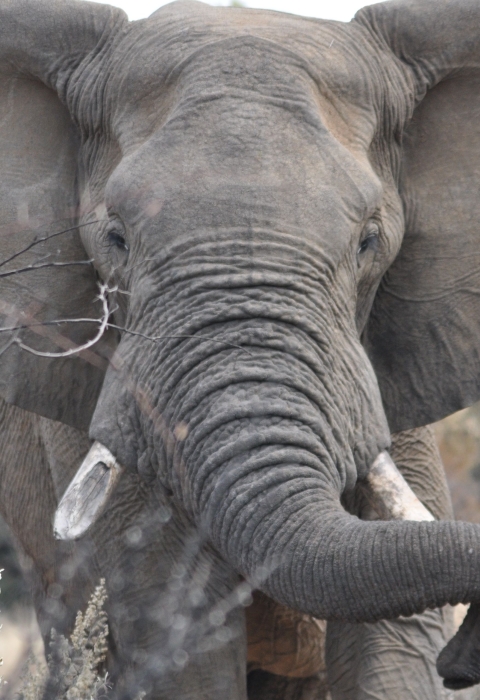WASHINGTON, D.C. – The U.S. Fish and Wildlife Service today published a final rule that will improve African elephant conservation by increasing protections for elephants imported to the United States. The rule strengthens protection and conservation requirements to help ensure long-term conservation and survival of elephants in the wild.
“The Service values collaborative conservation of wildlife all around the world and is committed to improving implementation of international conservation law” said U.S. Fish and Wildlife Service Director Martha Williams. “Our actions today will help support range countries’ efforts to manage and conserve African elephant populations and will further protect African elephants that are imported to the United States. We are optimistic that with this final rule and by continuing to work in partnership with range countries, wild African elephant populations will be sustainable into the future.”
Today’s action to amend the African elephant rule under section 4(d) of the Endangered Species Act will strengthen protections of internationally traded live African elephants, increase transparency of the Service’s permit decision-making, and more closely align U.S. requirements with guidance from the Convention on International Trade in Endangered Fauna and Flora. CITES is a convention of 184 Parties, including 183 countries and the European Union, that ensures species trade is legal, sustainable and traceable through appropriate regulatory and control systems.
Specifically, the rule will benefit African elephants by:
- Supporting countries that import elephants to the United States to enact national legislation necessary to enhance elephant conservation and protections, including penalizing illegal trade.
- Requiring that the authorized imports of trophies and live elephants will contribute to enhancing conservation and not contribute to the decline of the species.
- Ensuring that imported live African elephants have strong protections once in the United States, including by requiring that these elephants and their offspring go only to facilities suitably equipped to house and care for them.
- Clarifying sport-hunted import regulations and permit requirements to increase transparency with stakeholders.
African elephant numbers in the wild have fallen from as many as 26 million individuals at the end of the 18th century to an estimated 415,000 today. Over the years, they have faced numerous threats, ranging from habitat loss and degradation to poaching for ivory and retaliative killing due to human-wildlife conflict. Today, trade of live African elephants adds to the challenges they face.
Well-managed hunting programs provide some African elephant range countries an opportunity to generate significant funds for conservation, including for habitat protection, population monitoring, wildlife management programs, mitigation efforts for human-wildlife conflict, and law enforcement efforts.
For sport hunting to achieve its conservation potential, it must be well-regulated, include accountability measures, and have additional safeguards in place. Under this final rule, African elephant range countries that export sport hunted African elephant trophies to the United States will now be required to provide the Service with an annual certification on the current management and status of their elephants and the hunting programs in their country. This information will highlight what African range countries are currently doing to conserve their elephants and will help inform decision-making on permit applications.
As a result of these updated protections, the import of live African elephants, African elephant sport hunted trophies, and African elephant parts and products (other than ivory, which is regulated separately) into the U.S. will now be limited to the countries that have enacted national legislation to effectively implement the basic requirements of CITES and are designed to ensure species conservation.
The Service published a proposed rule Nov. 17, 2022, which opened a 60-day public comment period that was extended an additional 60 days at the request of range countries and other public commenters. A public hearing also was held. The Service reviewed over 130,000 public comments on the proposed rule from a range of stakeholders, including African elephant range countries, non-governmental organizations representing a diversity of opinions, and the public. An overwhelming majority of comments highlighted a desire to ensure healthy populations of wild African elephants.
The 4(d) rule for African elephants has been amended four times in the past. The most recent amendment was in 2016 in response to an increase in elephant poaching for ivory. Based on evaluations of the current threats to African elephants, these new amendments are necessary to protect and conserve African elephants both in the wild and in captivity in the United States.
The final rule will take effect May 1, 2024. The rule is available today here: https://www.federalregister.gov/public-inspection/2024-06417/endangered-and-threatened-species-section-4d-rule-for-the-african-elephant
Additional information may be found on our 4(d) Rule for African Elephants webpage.

